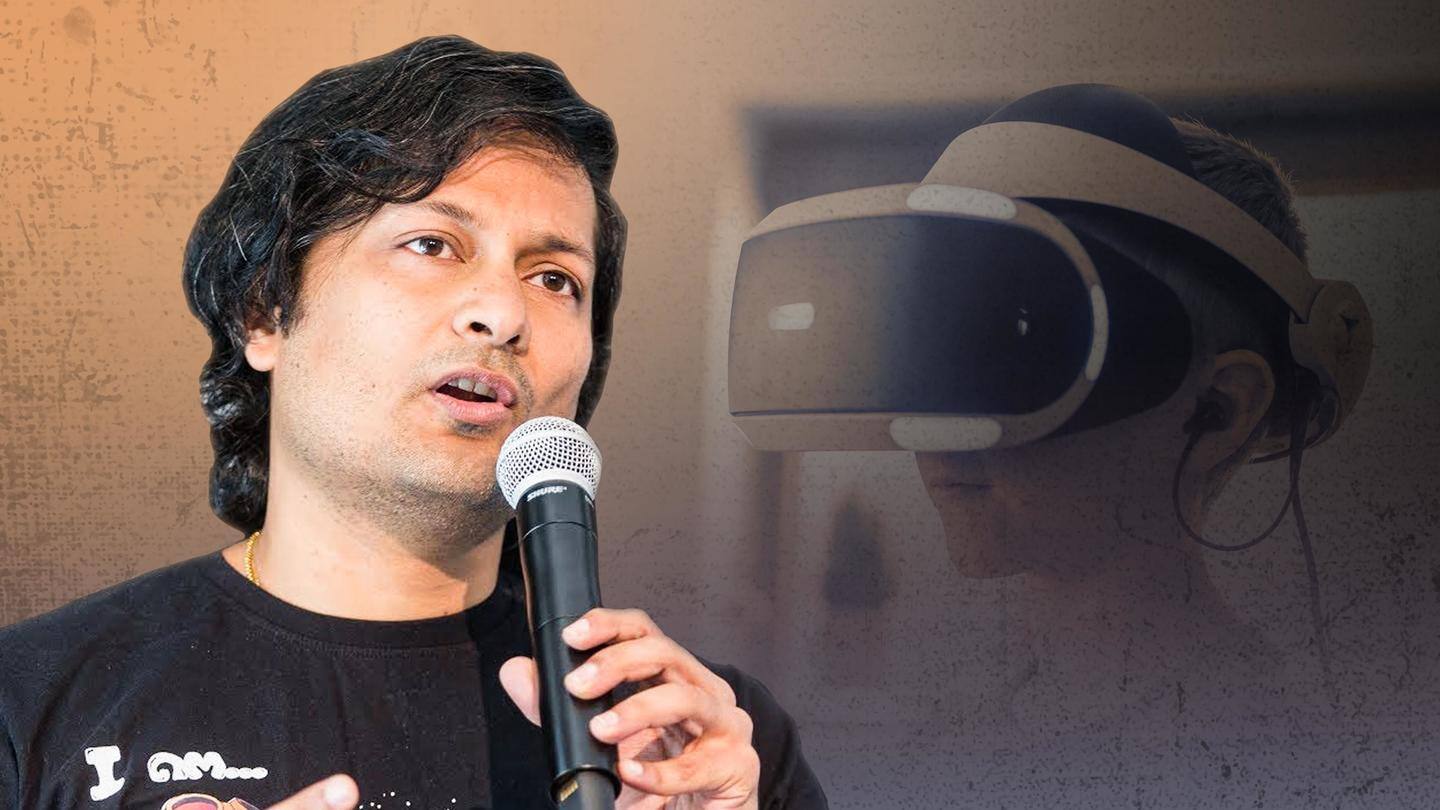
This Indian entrepreneur got world's first patent for 'digital vaccine'
What's the story
Bhargav Sri Prakash, an Indian biomedical tech entrepreneur, was recently awarded the world's first patent for a "digital vaccine"—a platform that addresses real-world health issues via the metaverse—by the US Patent and Trademark Office.
He is the founder of a life sciences start-up named FriendsLearn.
A digital vaccine uses apps on smartphones, tablets, and similar devices to influence positive human behavior via neurocognitive training.
Context
Why does this story matter?
These digital vaccines are part of an emerging science known as digital therapeutics, which aims to deliver medical care via electronic devices by inducing behavioral changes broadly with evidence-based software solutions.
Prakash recently received the patent for "systems and methods for digital vaccine," which he developed as part of Carnegie Mellon University's Digital Vaccine Project.
It employs artificial Intelligence and a gamified metaverse platform.
Statement
Milestone for scientific field of digital vaccines: Prakash
"It is a milestone for the scientific field of digital vaccines. It also represents an uncommon milestone for an Indian deep tech start-up's biomedical innovation on the world stage," Prakash earlier reportedly stated.
"The platform has broad applications—it can potentially prevent a wide spectrum of diseases ranging from COVID-19 and influenza to diabetes, cardiovascular disease, hypertension, certain cancers, and even cognitive diseases," he explained.
Fact
Technology used to develop game resulting in positive health outcomes
Prakash's patented technology was used to develop a mobile game, Fooya!, which was used in clinical trials on children aged three to 18 years.
The player/child is a superhero in the game, fighting junk food that an evil scientist created.
Children who played Fooya! for just 20 minutes weekly reportedly made healthier food choices immediately and subsequent weekly sessions replicated positive health outcomes, too.
Progress
Digital vaccines being implemented by Carnegie Mellon project's partner schools
Digital vaccines are being implemented by select international school partners of Carnegie Mellon's project—reportedly including one in India.
In the United States, Prakash submitted his patent application five years ago. His applications are pending in India, Europe, China, Australia, Canada, and New Zealand.
"The opportunity to...prevent disease by non-invasively stimulating the body's immune system and biomarkers through software presents a vast potential," he said.
Quote
It can form lifestyle habits, reduce disease risks: Expert
Game-based learning isn't a new concept to promote health, said Rahul Ladhania—a data science researcher and faculty member at the University of Michigan School of Public Health.
But what distinguishes digital vaccines is the implicit learning and neurocognitive training mechanism components, which can develop biomarker-level changes in people, aiding in the formation of lifestyle habits and lowering the risk of several diseases, he said.
Expert
Technology can be extended for treating various diseases: Ladhania
Researchers from Ladhania's school, which developed the world's first polio vaccine, are also analyzing the health effects of this cutting-edge vaccine platform.
Although most technological interventions have so far been aimed at children, Ladhania said, "This can easily be adapted and extended to applications for preventing or treating a wide range of pathologies—like post-traumatic stress disorder, mental health, sexual health—and for diverse target populations."